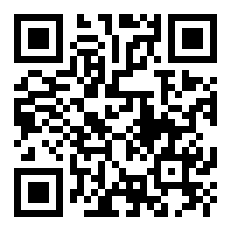The Contributions of Oral Literature to the Development of Ibibio Language
Keywords:
verbal art, oral literature, communication, language, culture, societyAbstract
Oral literature is a form of verbal art that houses different forms of arts. Poetry, prose and drama were first performed orally before they were given permanent mark through documentation. The three genres of literature have captured the oral traditions of the Ibibio society with language for different purposes. This research seeks to advance the contributions of oral literature to the development of the Ibibio language. The study adopted a qualitative approach. Secondary data were most essential for this study. The study objectives bring to light the preservative, educative, aesthetic beauty of oral literature in revitalizing the Ibibio language. It evaluates how oral literature boosts the language content and competence of Ibibio language users as well as promotes the social identity and intellectual ingenuity of the people. The result shows that literary artefacts are great boosters of indigenous language performance capacity. They add flesh to language skeletons as well as to attenuate social identity and intellectual creativity of the language.
References
Akpabio, M. I. (2016). Ese Akwa Ibom Sted. Uyo: Fruities’ Publications Limited
Akporobaro, F. B. O. (2012). Introduction to African Oral Literature. Lagos: Princeton Publishing Co.
Chukwuma, H. (1994). Igbo Oral Literature: Theory and Tradition. Uyo: BELPOT (NIG.) CO.
Cole-Beuchat, P. D. (1965). Riddles in Bantu: The Study of Folklore. USA: Prentice-Hall, Inc. pp.118, 187.
Emmanuel, I. U. (2004). Orature and Globalization in Selected Works of Bessie Head and Toni Morrison. In David Eka (Ed.) Journal of Nigerian English and Literature. 5.
Emenyonu E. N. (1973). African Literature and Cultural Re-evaluation. Addis Ababa: International Congress of Africanists
Essien, O. (2008). A Grammar of the Ibibio Language. Ibadan: University Press
Finnegan, R. (2012). Oral Literature in Africa. Cambridge: Open Book Publishers
Moses, I. E. (2018). Melodic Features of Ibibio Riddles. MA. Dissertation Unpublished
Myeong, D. H. (2011). History of Oral Literature and its Codification the Textualization of Epics and Legends in their Historical Context. Retrieved on February 17th, 2020, from https://www.zum.de/whkmla/sp/1213/jeannedarc/mdh4.html.
Syal, P. and Jindal, D. V. (2010). An Introduction to Linguistics: Language, Grammar and Semantics. New Delhi: Prentice-Hall of India
Ukpong, E. A. (2007). An Enquiry into Ibibio Culture: Ibibio Names. Uyo: Dorand Publisher
Zablocki, J. (2013). Six Benefits of Riddles for Children. Retrieved on February 17th, 2020, from http://goodriddlesnow.com/posts/view/six-benefits-of-riddles-for-children
Difference between Ballad Editors. (2016). Differences between Ballad and Epic. Accessed on February 25th, (2020). www.differencebetween.com/difference-between-ballad
Literary Devices Editors (2013). Ballad. Retrieved on February 20th, 2020, from https://literarydevices.net











